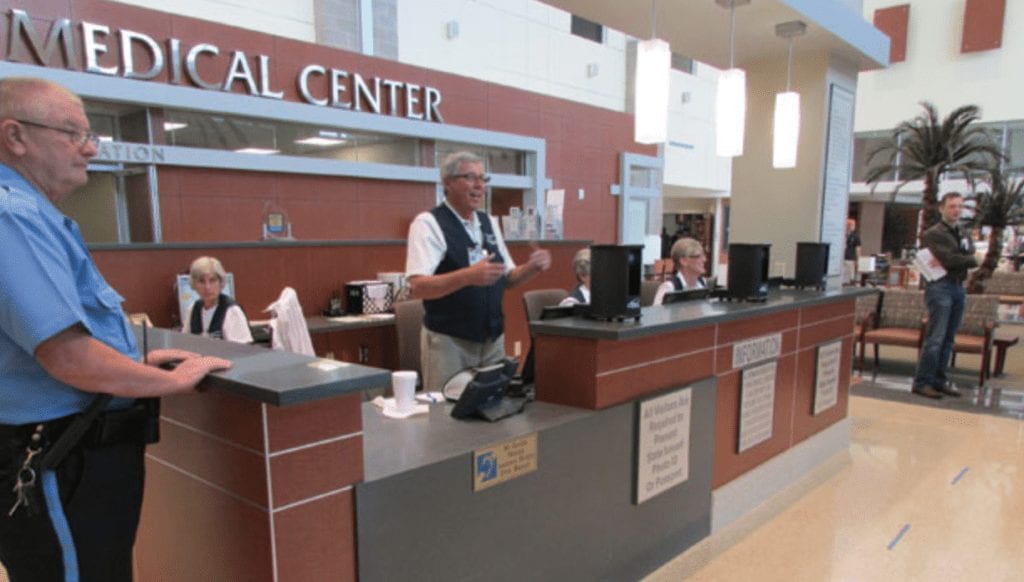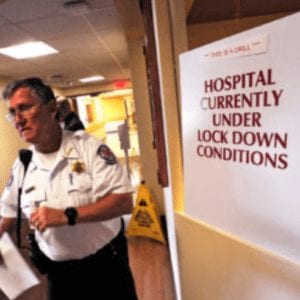
When you think of hospital security, usually the first thing that comes to mind is a police officer guarding a hospital room of a criminal or witness that sustained some sort of injury. Usually, the security guard at the entrance of the hospital or the one in the reception area doesn’t come to mind but they are just as crucial to any hospital as the nurses and doctors.
Security stations and security guards are a crucial component in a hospital setting. They protect hospitals and keep patients and workers safe allowing them to stay focused on their jobs rather than potential security risks. Here are a few of the things security guards commonly do in most hospitals, emergency centers and health clinics.
Identify Potential Threats and Incidents
Unfortunately, threats to hospitals are all too common. Just recently in June 2017, Somerset Hospital in Somerset, PA was  locked down for two hours because of a bomb threat.
locked down for two hours because of a bomb threat.
Just like any building with large amounts of people, hospitals are vulnerable environments to threats like theft and violence. If there is a threat, it can have a huge impact on the well-being of sick or injured patients. Having trained security guards on site that can identify and address potential hospital security threats prior to them happening makes all the difference.
Security guards are trained to patrol the hospital and locate any threats or potential security risks. They can identify thieves or vandals, notice suspicious packages, or pinpoint slip-and-trip hazards in the building. They can mitigate these problems to protect the hospital building and its occupants.
Handle Out of Control Patients and Family Members
In a hospital, patients suffer both physically and emotionally. This is especially true when they receive devastating news about a health condition or experiencing the loss of a loved one. The hospital setting can significantly raise stress levels of both patients and their family members. It’s very to see an outburst of emotion in a hospital setting.
Sometimes angry people can be a threat to hospital workers, patients, and visitors. They can hurt themselves or even cause physical violence to others. Occasionally, hospital staff is unsuccessful calming these patients down and trained security staff needs to help out.
Security guards have training in how to deal with angry and unmanageable people. They know how to de-escalate the situation by speaking calmly and giving the person options about what they should do next. If de-escalation strategies fail, security guards can safely secure the angry person or evacuate the angry person from the building.
Guard Restricted Access Hospital Areas
Hospital workers don’t want people entering certain areas of the hospital where they shouldn’t be. Security guards ensure only hospital staff with the proper credentials get into areas of the hospital with restricted access. They can also use cameras to monitor who enters and exits various areas in the hospital.
Assist with Healthcare Emergencies
Security guards can assist healthcare professionals and administrators with their basic duties. When you look for security guards for your hospital, find guards who are trained in CPR and using AEDs.

